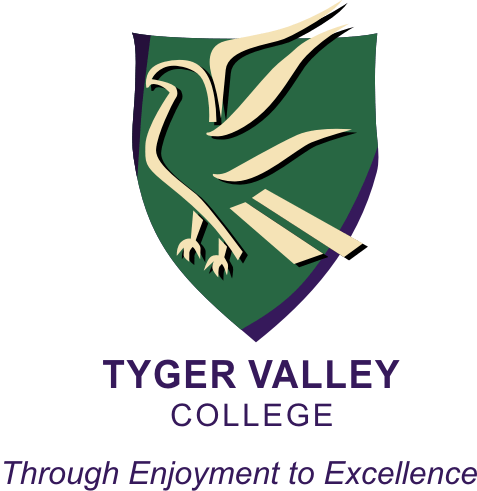Building resilience in children despite COVID-19
Dr Ilse Ruane • April 8, 2020
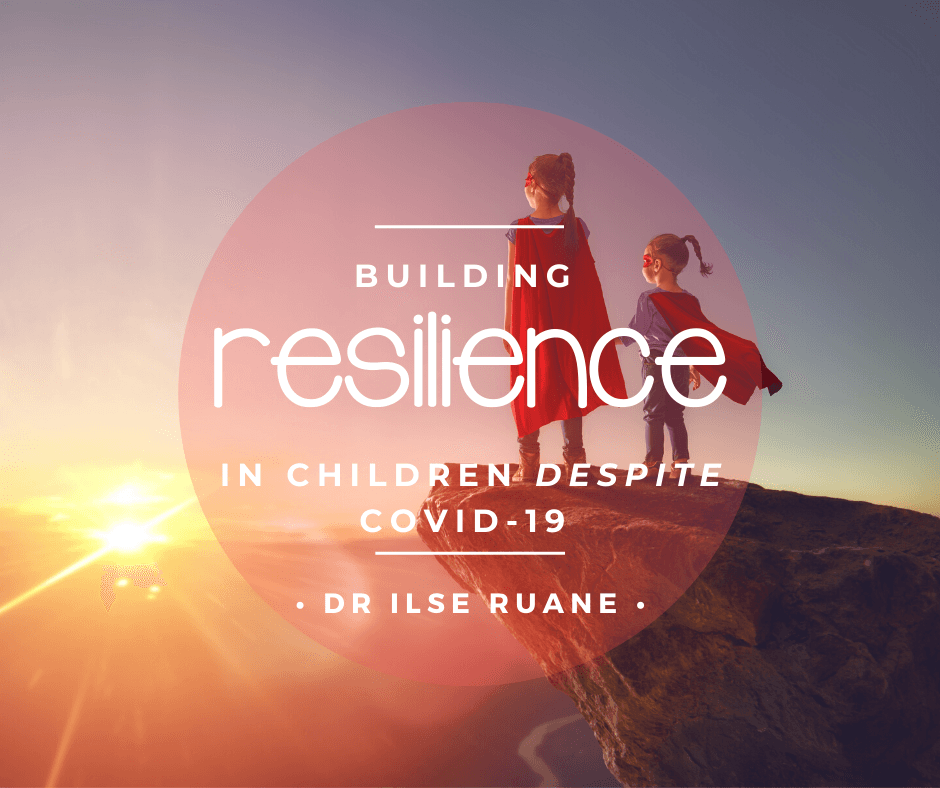
The most important factor in building resilience in children and helping them process situations is to have loving adults who are there for them and who are physically, emotionally and spiritually available. Children rely on us to figure out how to interpret events. Unfortunately, we cannot protect our children from the consequences of COVID-19. However, the way we respond and the support we offer can help buffer the consequences. It can also make it easier for our children to bounce back. They listen to our words, notice our stress levels, and watch what we do. Feeling secure and connected to parents, family members, teachers, friends or community is the greatest protection children have. It builds their resilience now and well into the future. With a support system in place, you will be able to keep negative beliefs to a minimum, calm fears, restore ideas around ‘normal’ and pull together as a family so that we all may bounce back, and even grow from the challenges we are facing.
So what can we, as parents, do to help them.
1. Listen to fears and concerns
Listening shows parental love and acceptance as well as helps children figure out problems. Children react to challenges differently to adults. After physical reassurance, a good hug, ask children what they understand about what is happening and what questions/concerns they have. Listen for misunderstandings and remember it is common for children to have fears based on information given. Asking children directly what they understand or how they feel may not be enough to get them to voice their feelings.
- Younger children may need your help to find the words to express what they are feeling. Offer them words to choose from by telling them it is normal to feel sad, confused or scared. Be a role model by sharing how you are feeling and explaining what you are doing to help yourself feel better. Encourage them to express feelings through play, drawing, storytelling or other creative activities.
- Older children and teens might find it easier to talk about what others think. "My friend Sarah said that she feels afraid. Isn't she weird?" When this occurs, do not remove the mask by saying, "I'll bet you are really feeling weird too." Rather talk about what Sarah must be feeling and how it is understandable. Ask your child what Sarah’s mom and dad could do to make her feel more secure.
- Try not to force your child to talk. Some children will act as if they are not bothered by the situation. If so, there is no reason to push them, but tell them you are there to listen when they are ready. Your child may have concerns but the overarching current need in sense of normalcy. Normal at this time of lockdown is tricky to achieve. Discuss achieving “normal in lockdown” with your children, they have amazing ideas to try.
- Another way to open the discussion is to model your own way of working through something. Let your children see you talking, exercising, reading, relaxing and observe what happens. Remember little eyes are watching our moves.
2. What to Say
More than anything else, we must be honest about what is happening. Sadly, COVID-19 is not the kind of truth that we can protect our children from, but the truth does not need to include every gory detail. How much detail to share will depend on their ability to understand. Age appropriate information and follow the rule of thumb only answering the questions they ask. There is no need to give more information than what would satisfy their current question. They will come back to ask more when they are mentally, emotionally and psychologically ready to ask more. Young children will need simple, concrete explanations of what is happening and how it affects them. For example “Why can’t I go play at Peter yet?” If they have a misunderstanding of events, correct them. But if you get "It’s just while we have to stay safe and not spreading the virus hey mom?" then there is no need to add more details. Their simple explanations may be exactly what they need to believe to feel safe. The goal here is to try not to take away that sense of security they are constructing for themselves. Older children and teens will likely ask for and benefit from additional information about the situation and actions being taken in the country. Also be sure to open conversations about what they are seeing on social media such as Instagram. There is a lot of nonsense doing the rounds that needs to be unpacked.
Saying “I do not know” is OK. Do not be concerned about saying the perfect words, there are no perfect words. It is OK to say you do not know why it is happening or how to solve it. The main goal is to reinforce that you and your children are safe. Focus on the steps you are taking to become safe. If you can, point out things like the social distancing and staying home so that doctors and nurses can work to help those affected. They may also be worried about the safety of their friends or extended family. Be honest if you really do not know, but reassure them that their friends' parents are taking care of them. You might tell them about how the doctors, nurses and government are working hard to fight against the virus, how the farmers are growing food, the grocery stores are still open to ensure we can buy goods or how rubbish removal workers are keeping our communities clean.
3. Limit Exposure to the Media
Try to monitor and limit your children’s exposure to media especially the news and fake news. News coverage is often overwhelming. Ultimately, it may change the way they view the world. They may begin to see it as a threatening, scary place. There is so much fake news and conspiracy theories circulating currently on social media that we need to be extra vigilant of what the teens and children are consuming. We need to try to encourage messages of hope and optimism. This helps build resilience. Even in the most difficult situation, your positive outlook on the future will help your children see good things in the world around them, helping them through challenging times not only now but in the future as well.
4. Controlling the ‘controllables’.
Easier said than done but try… control what you have control over and try not worrying about what we cannot control.
- Get back to some routines. As soon as possible, try to follow some routines because they provide comfort and a familiarity in their structure. Believe it or not starting online schooling next week Tuesday will be a good thing. It brings routine. Follow as normal a schedule as possible. Try to maintain household rules and discipline. Rules and discipline provide children with security. It is fine to let your children be more dependent on you at this time. Things that may seem small to you, like watching television or having friends over, are important to your children and will be seen as big losses. Be patient and help children think of alternative activities if their regular activities are cancelled. Provide plenty of opportunities for play and learn.
- Children cope better and recover sooner when they help others because it creates a sense of control and helps children feel better about themselves. Little things such as drawing granny a picture and WhatsApping it to her can make a huge difference to all. Phoning a friend that may be forgotten in the usual social mix. There are many apps available that can bring us “together” at this time, so let’s use them to break the disconnect.
- For the older children and teens, another way to encourage a child's sense of control is to review your own family plan together. What are we planning to do if x happens. Coming up with a family plan increases their sense of security.
In summary:
• Focus on building resilience through some structure and routine. Our mental health relies on our physical routines, all too easily lost during challenging times. No routine whatsoever is unsettling. Adults and children may be happier with a rough schedule day to day.
- Exercise: Daily, or every second day, exercise will make your children happier, even if they complain. It will probably make you happier too. Exercise affects mood, energy level, learning, and more. If you cannot get outside, Yoga or Pilates are great, or seek out online exercise apps. I also know some of our coaches are offering training programs, make use of their expertise and skills at this time. It creates connection and gives you, your children (and the coach) something to fill a portion of the day.
- Sleep: A consistent routine, including a consistent bedtime, encourages better sleep. Sleep heals.
- Nutrition: Eat as healthy as you can. Cooking and baking are a great activity when inside all day and they build relationships.
- Screen time: I cannot stress this one enough. Stay on top of screen time. Kids who spend too much time on screen get moody and edgy, especially the teens. Open-ended limits lead to problems. Set limits where possible. For adults, you may need to do the same, particularly by taking breaks from the news. There are so many conspiracy theories going around and these will escalate as time progresses. Use time on-screen wisely and concisely. Be critical of what you consume as real.
- Relationships: One of the best uses for screens is in relationships with true friends and family. Let’s use technology well. Support your family and your children by reaching out regularly to friends and relatives during this time.
• Stay vigilant around online schooling. This is new to all, expect your child will need supervision and guidance while working online. Children with learning concerns will need more direct involvement and structure than same-age peers to get online work done. Ask for teacher support early. If your child is struggling to learn at home, seek out advice for what to try next.
• Stay realistic but reassuring about COVID-19. Remember, children process things differently than adults. Encourage discussion and questions but avoid flooding with facts. Children tend to need straightforward answers to their questions. Then wait and see what further questions your answer brings. Answer those questions in the same way, to the point and reassuring.
We need to change our thinking around staying home due to COVID-19. Yes, the reality is present but there is also hope. If we dare to deconstruct the dominant negative narratives and stand against these stories by breathing life into alternate stories of hope and growth, we then take a stance which is very different. We are then a community working to protect the vulnerable among us. We are then building our “community”. We are then teaching our children solidarity and preparedness, as a family, as a community, and as a country. We are then redefining our values and we will find gains during this challenging time.
I leave you with a parting question:
How often are we given the opportunity to spend 21 (or more) days with our family?
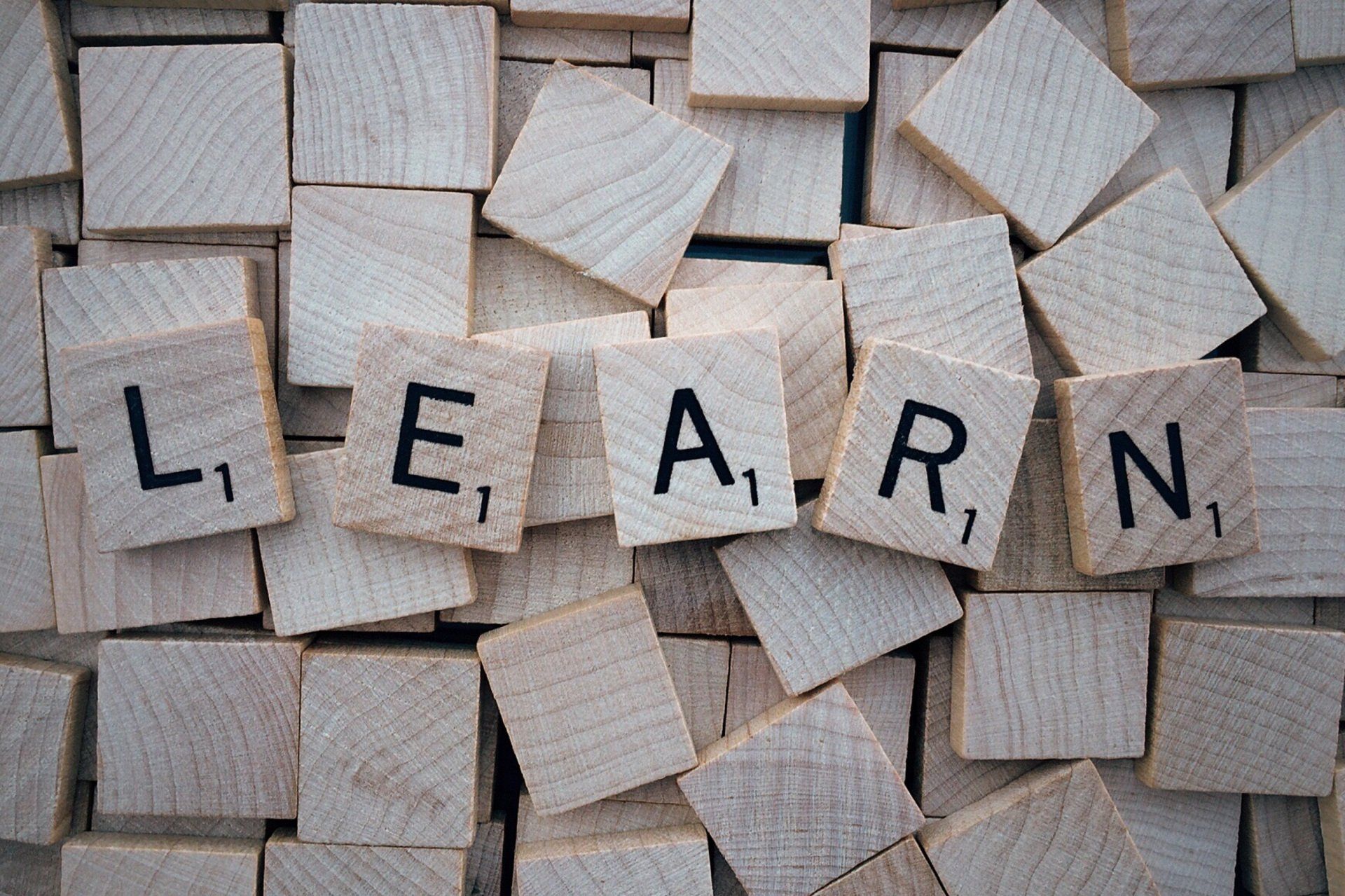
In a first for the country, South Africa’s leading private education provider, ADvTECH, will this month start rolling out a unique, locally developed personalised learning digital platform across its schools. ADvLEARN is a customised platform for ADvTECH Schools that provides personalised learning paths using adaptive technology to deliver data-driven insights and learning analytics. Students will therefore have a unique learning experience while constantly improving their understanding in core areas. “We are very excited to have partnered with MathU to bring this groundbreaking digital learning platform to our Grade 7 to 12 students, a move which will further cement our reputation as a leader in education in the country, in line with our vision to stay at the forefront of global technological innovation and emerging best practices,” says Desiree Hugo, Academic Head at ADvTECH’s Schools Division. ADvTECH Schools Division will initially use ADvLEARN to enhance learning in Mathematics (Grade 7 to 12), Physical Sciences (Grade 10 to 12) and Mathematical Literacy (Grade 10 to 12). The pedagogy applied in ADvLEARN seeks to find the gaps in students’ learning, and then fill these gaps to ensure they improve their understanding in core areas. Through adaptive learning technology, the system supports both students who want to progress faster as well as students requiring reinforcement of key concepts. MathU is a software as a service (SaaS) company based in Pretoria, specialising in artificial intelligence and software engineering. The team at MathU has developed an innovative software solution that uses state-of-the-art engineering principles to map, monitor, and assess student progress. The platform has been adapted to cater to the specific needs of schools and universities, and the company was founded by engineers and scientists who are passionate about improving mathematics and science education. MathU provides solutions to schools and universities looking to enhance their educational offerings and better support their students. “In addition to enhancing student learning, ADvLEARN will also give teachers the ability to instantly allocate relevant student work and homework to student devices, immediately access student performance and achievement data, as well as easily view and identify concepts needing reteaching and review,” says Hugo. “We are truly excited about taking education another step into the future in 2023, and look forward to seeing how this strategic partnership cements and accelerates STEM learning for our students.”
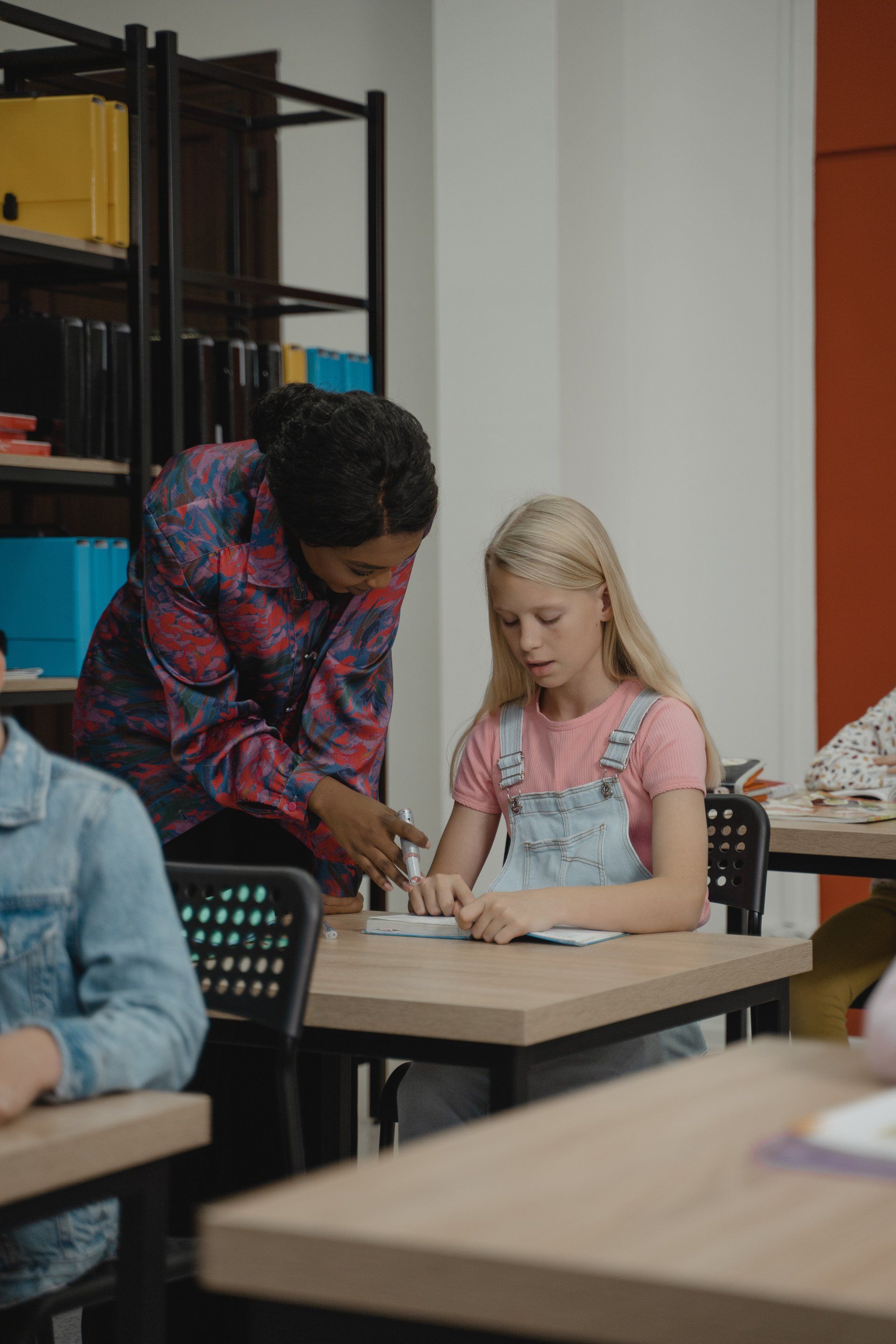
POST-LOCKDOWN: ADDRESSING SA’S TEACHING AND LEARNING CHALLENGES IN 2023 BY DR GILLIAN MOONEY, Dean: Academic Support and Development, The Independent Institute of Education South Africa is yet to determine the full implications of the pandemic lockdowns on Teaching and Learning, and we can only really speak to the short-term effects at this point. There is currently a wealth of academic literature on this topic, and research will continue. However, it is already clear that the pandemic lockdowns represented a significant disruption to the way we think about good teaching practice and what students need to do in order to learn. Reflecting at this current point in time, certain themes have been identified, some affecting both lecturers and students, some affecting a single group only, and some affecting the practices of teaching and learning. THEME 1: SOCIO-EMOTIONAL CONSEQUENCES It is well-known that teaching and learning is not only a cognitive issue, but that how we feel about ourselves and others has an important role to play. We also need to remember that the lockdown had emotional and social consequences for everyone. These primarily included a sense of isolation from others - this is well reported in the literature and indeed, likely to be part of what we call “common sense”. In terms of post-lockdown, many continue to feel this sense of isolation, which requires a conscious and concerted effort on the part of schools and universities to address. This may be complicated by the fact that the pandemic itself also made us less trusting of one another. Wearing masks, or essentially, protecting ourselves from other people, may still linger in our psyches. Across South Africa’s schools and universities, there has been an increase in the number of students who are suffering from challenges related to mental and emotional wellbeing such as depression and anxiety and seeking assessment concessions as a result of this. Some examples of these would be requests for more time to complete assessments or writing assessments in a separate venue. What may be interesting to research, albeit in the absence of a pre-pandemic baseline, is determining whether parents who were home-schooling their children are now more invested/ involved than before in their child’s education. The point here is that, never before have parents had to know in such detail what their children are doing at school. Has this interest continued post-pandemic? If so, and anecdotally that seems to be the case, that will be a welcome development if it is the case that parents now take a closer interest in their child’s educational journey. However, what we may find is that parents have experienced “school fatigue”, and may be less inclined to engage with the everyday issues of their children’s education. This is all supposition, and substantive research would be required here to gain answers to this question. THEME 2: NAVIGATING THE TRANSITION FROM SCHOOL TO UNIVERSITY It has always been a challenge for students to adapt from one learning space to a different one. However, the “COVID-Cohorts”, those students who finished their schooling during the pandemic and moved to university during or shortly thereafter, have found this particularly challenging. For example, some students had their last two years of schooling either online or being “home-schooled” independently. These experiences would have been different, depending on the resources of the school and the parents. For some university students, they began their university journeys fully online, and unfortunately, in many instances, still continue to do so where institutions still haven’t returned to in-person lectures. In other instances, students may be choosing to study in the distance, rather than contact mode of offering. This makes for a very non-traditional university experience and detracts from the life milestone that being a student traditionally entails. Most universities have a hybrid model going, i.e. some classes are online, and some are in a classroom. Some institutions, because of their smaller size classes (and the physical distancing constraints) were able to accommodate this kind of hybrid model from the pandemic until now, so there has been very little change for these students. However, not all universities currently have all classes fully in person, while others do, so there may be variance here. As those universities who have not yet returned to in-person prepare to do so in 2023, the effects of the pandemic lockdown may become clearer. THEME 3: LEVERAGING TECHNOLOGY IN TEACHING The pandemic forced a widescale rethinking of how teaching and learning occur. This is an important point because the historically basic transaction of teaching, i.e. a person standing in front of a class facilitating learning, has never really changed. What the lockdowns forced onto us was a re-think of how we assess, how we mark, how we teach, and how we use our learning management systems (LMS). So, it is not all doom and gloom because here a crisis was an important turning point that allowed fast-paced development in teaching and learning practice to occur. However, as with any crisis, this placed pressure on both lecturers and students, who needed to adapt quickly so as not to fall behind. It also placed a tremendous burden on those institutions that lack agility and resources, and some of this still needs to be overcome even now. An important example of this would be marking online, instead of hard copies. This was a big change for lecturers, who have now adapted to this practice and are not likely to want to go back to pen and paper. We also have more effective ways to track student submissions. There is a steep hill to climb for those institutions that have not yet adapted. The challenge now is not merely to replicate bad teaching and learning practices with fancy technology, but to understand how technology can enhance teaching and learning. There is now a plethora of competing technological products, which are all trying to gain their market share. Obviously, as with anything, some are better than others, and institutions need to think carefully and do their due diligence before making such big investments. ENDS Issued by: MEROPA COMMUNICATIONS On behalf of: THE INDEPENDENT INSTITUTE OF EDUCATION www.theworldofwork.co.za or www.iie.ac.za Note to editor: The Independent Institute of Education (The IIE) is a division of the JSE-listed ADvTECH Group, Africa’s largest private education provider. The IIE is the largest, most accredited registered private higher education institute in South Africa, and is accredited by The British Accreditation Council (BAC), the independent quality assurance authority that accredits private institutions in the UK.
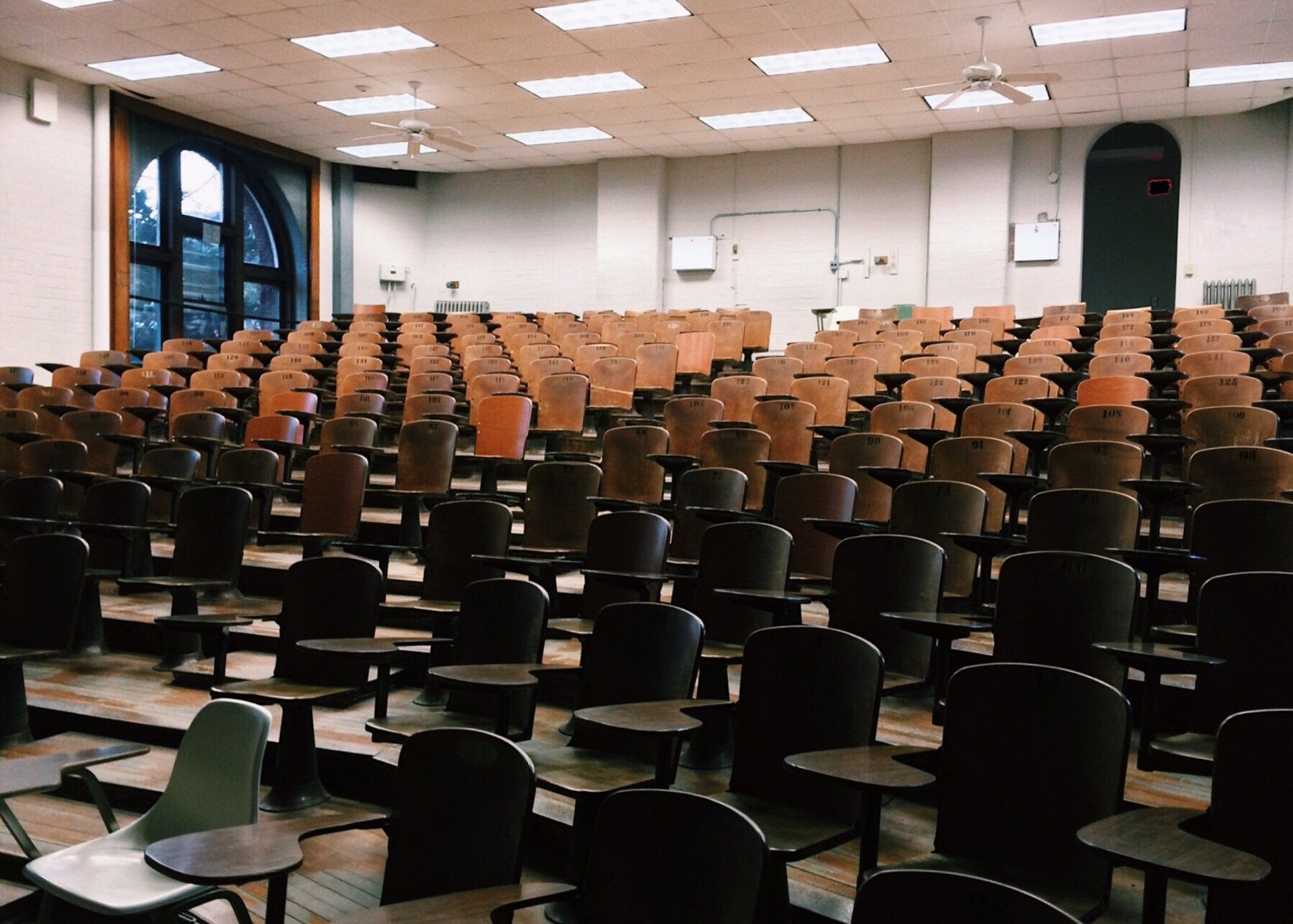
It’s that time of the year when students experience what is called ‘year-end fatigue’ – whether they be Matrics getting ready for the most important exams of their school career, senior high students aiming to perform at their best as they progress towards Grade 12, or graduate students at universities preparing for their end-of-year assessments. For all of these students, the coming weeks are going to be a test of their focus, strength and endurance as they aim for top marks. Yet at the same time, they have to contend with the fatigue that has most likely set in after all their hard work during the past year. But by reframing their mindset and ensuring they stick to some tried and tested guidelines, they can all dive into the last quarter of 2022 with renewed enthusiasm to ensure they finish the year strong, an education expert says. “Signs of year-end fatigue include low energy levels, a feeling of being unable to keep up, a lack of motivation, feeling overwhelmed and exhausted, being unable to sleep, and low levels of concentration while possibly feeling anxious,” says Dr Rufaro Audrey Mavunga, Senior Head of Programme in the Faculty of Law at The Independent Institute of Education, SA’s leading private higher education provider. She says this situation may lead students to start slacking when they can least afford to, for instance by bunking classes, not participating in school or university activities, procrastinating and putting off revision they planned hoping that they might feel more motivated to tackle tasks later, and by checking out of their circumstances by sleeping too much or watching too much television. “If you are feeling like this, rest assured that it is normal to feel tired and overwhelmed and that you are not alone. However, you should also know that it is possible and important to overcome these feelings so that you can finish strong, and that it is within your ability to do so if you act decisively right now. There is still enough time to make sure you can get a handle on things again and get on top of your academic work to the best of your ability.” Dr Mavunga advises students as follows: Take some time off This may sound counter-productive, but it can help to take a day or two to regain your focus without feeling guilty. In these days, you can catch up on sleep, get out in nature for some relaxation, and remind yourself about the why and the how of what you are doing right now. Get your mind in the right place, and resolve to start the final stretch with vigour. Also use this time to lay out your schedule and plans for the coming weeks, right until you’ve put down your pen on your last exam. Revisit your study timetable and manage your time efficiently To finish strong, you need to continue with regular study sessions every week till the end of your exams. Do not count on doing an all-nighter just before you write an assessment. You should revisit your study timetable and ensure that you have set up fixed hours for study every day. Plan for enough time to study each module and add your study sessions to your calendar like any other commitments. This guarantees that you keep in mind that this is time set aside exclusively for studying. Bear in mind a study plan works best when it is followed consistently. It is imperative that you stick to your plan, as this will ease tension and anxiety if you can see your consistent progress. Maintain a healthy lifestyle Exercise has many benefits, but it has been proven that exercise releases endorphins, which can improve your mood and reduce stress levels. Fatigue and tiredness could also be an effect of a lack of proper nutrition. Make healthy meal selections wherever possible and consume lots of water. Make sure you factor enough sleep into your schedule and don’t use that time to endlessly and mindlessly browse social media. Stay away from activities that are going to tire you out for days to come and keep a single-minded focus on your priorities right now. This too shall pass, and you’ll be happy you stayed true to yourself when results day comes. Get help if you need it Sometimes one feels so helpless and it may feel like you are stuck in a deep dark hole with no way of coming out. Give attention to the positives you encounter and embrace them. Consult school or campus support staff to gain different perspectives on how to ease the fatigue and to get over negative feelings you may have. If you need additional assistance with the academic side of things, approach a teacher or a lecturer for guidance. If you need additional emotional support, ask trusted adults at home or at your institution to assist in getting the support you need. Keep your eye on the end goal Commit to finishing strong. In your downtime, look at your path ahead – what dreams and aspirations will become accessible if you perform well during this stage of your academic journey? What avenues of study may open up for you? What possibilities and opportunities may arise? “At this time of year, it’s easy to get lost in the fog of studying and worrying, and it’s easy to lose perspective about the bigger world out there and the fact that all of this is part of life’s journey. The end of this year will soon come around, and your effort will be rewarded if you know that you gave it your all on the road to making your dreams a reality,” says Dr Mavunga. ENDS Issued by: MEROPA COMMUNICATIONS On behalf of: THE INDEPENDENT INSTITUTE OF EDUCATION www.theworldofwork.co.za or www.iie.ac.za Note to editor: The Independent Institute of Education (The IIE) is a division of the JSE-listed ADvTECH Group, Africa’s largest private education provider. The IIE is the largest, most accredited registered private higher education institute in South Africa, and the only one accredited by The British Accreditation Council (BAC), the independent quality assurance authority that accredits private institutions in the UK.

Time is running out for parents and guardians of senior primary school students to find and enrol at a high school that will best prepare and position the child for a successful future. It can be very confusing to make a call on which school is best suited for this most important task, as there are countless variables at play. However, if parents are prepared with a checklist of questions they need to ask (as well as examples of good responses), this task can be made a little easier – particularly when attending a school’s open day, an education expert says. “Good schools will host open days throughout the year, allowing parents and prospective students the opportunity to view and get a feel of a campus, ask questions, and decide whether a particular school is the right fit for them,” says Desiree Hugo, Academic Head: Schools Division at ADvTECH, Africa’s leading private education provider. “These open days are geared to provide opportunities for sharing the best aspects of a school, and excitement can quickly let important questions that need to be considered fall off the agenda. Whether prospective parents attend an open day, or just pay a school a regular visit to guide decision making, it is good practice to go with a plan in hand so that one can objectively compare schools on the various key elements required from an excellent institution,” Hugo says. The first factor – and a non-negotiable one at that – is the question of academic excellence and future-focused curricula, she says. “There can be no compromising on ensuring that the school you choose for your child will provide the absolute best on the academic front. An easy gauge of a school’s ability to deliver, is to have a look at end-of-year IEB Matric results to evaluate the performance of various schools against each other. Another way to judge this factor, is to look at benchmarking. “ Hugo advises that academically excellent schools will ensure they utilise international benchmarking assessments to confirm that the school remains locally and globally relevant with rigorous academic programmes and that academic data supports and engages all students in a personalised learning journey. “Also look out for clear visibility of student-centred practices as an important part of the academic model, intended to build confidence in an environment that values every student,” says Hugo. “Furthermore, parents should enquire whether the voices of the students are considered valuable in their learning journey towards academic excellence and student success, and whether they are they included in academic conversations with their parents about their plans for progress.” It is also a non-negotiable to enquire about the curriculum. A school must be able to provide evidence that their curriculum choice is implemented with integrity and is future-focused, and geared towards equipping students holistically across a broad range of technologies and global skills. Ask for evidence of what they do, how they do it, and outcomes, Hugo says. With the above basics satisfactorily answered, parents can move on to broader questions, such as: FACILITIES & AMENITIES The question that needs to be answered here, is how the offering supports the overall learning experience of students. Many schools select a focus for their offering, aligned to their fees, and may not offer all the bells and whistles, but rather ensure that the academic model and subsidiary activities are of an excellent standard instead of offering a wide bouquet. Check that classrooms are neat, well maintained and that they cater to a wide range of interests and offer flexible seating possibilities. For instance, do classrooms have useful educational technology, is Wi-Fi available, are equipped laboratories accessible, if promised, and are spaces for art, design and innovation utilised for future focused learning? On the sport side, do they cater to a variety of sport codes aligned to their model and offering, well-kept fields and facilities for those particular sporting opportunities on offer? Even if a child is not particularly sporty, well-maintained grounds are a good sign to take into consideration. STUDENT SUPPORT If a student requires additional academic support, whether it be emotionally or academically, what support structures does the school have in place, and how are they accessed? What disciplinary processes are in place to address bullying and other issues that may impact on the wellbeing and success of students? Does the school support the values of respect, diversity and inclusion – and is this evident in the classrooms and across the culture of the school? TEACHERS & CAMPUS STAFF What is the ratio of teacher to students in classes? And does the school highlight the academic practices to ensure all students are mentored and supported – no matter the class size? Are all teachers SACE accredited and can the school ensure police clearance is completed on all who work closely on the campus with children? Are the teachers offered professional learning opportunities to ensure curriculum and pedagogy are foregrounded to support student success? HOLISTIC ACADEMIC AND SKILLS DEVELOPMENT In addition to regular subjects that can be expected at most schools, which additional subjects may students access? What is the school’s approach to 21 st Century Skills, such as communication, collaboration, analytical thinking, creative thinking, digital literacy, and problem-solving? How are these skills embedded in the curriculum and the everyday learning experience of students? Is there evidence of cross curricular teaching and learning, and are the students granted regular opportunities to share their thinking and co-construct their learning collaboratively? ENDS ABOUT ADvTECH The ADvTECH Group, a JSE-listed company, is Africa’s leading private education provider and a continental leader in quality education, training, skills development, and placement services. The Group reports its performance in a segmental structure reflecting the Schools and Tertiary as two separate education divisions, and Resourcing as the third division. ADvTECH’s Schools division comprises 9 brands with more than 108 schools across South Africa and the rest of Africa, including Gaborone International School in Botswana, and The Makini Group of Schools and Crawford International in Kenya. It owns 9 tertiary brands, across 32 campuses across South Africa and the rest of Africa. ADvTECH’s 8 resourcing brands places thousands of candidates annually, assisting graduates to make the transition from the world of study to the world of work.

A mere cursory glance at social media and parent groups shows the anxieties and frustrations of parents with school going children today regarding access to an excellent education. Lack of access at public schools is a major challenge, with parents whose children qualify on all counts not gaining admission – through no fault on their part, but because of capacity constraints. Another observed challenge is that of children already at school, but where the environment is simply not preparing them for the modern world because of outdated pedagogies and ways of working, non-productive homework requirements, or a system that no longer serves the needs of students. An education expert says while the above and other issues related to schools may feel like an impossible hill to climb for parents, the reality is that there are many options in the private sector of which parents may not be aware. Additionally, parents sometimes discard the idea of private education out of hand because of the perception that it might not be within their reach financially, when that is not necessarily the case. “Over the past weeks, many parents have had to tell their children that they were not accepted at any of the schools to which they applied, despite them qualifying for access,” says Kassandra Strydom, Academic Advisor: ADvTECH Schools Division Central Academic Team. “We’ve also noticed parents highlighting the struggles their children are facing because of personal challenges or circumstances, being just a number at school, being required to take subjects that are of no interest to them and being subjected to teaching methods and approaches that are out of touch regarding what is required in today’s world and what will be required of them in future. “Parental concerns are becoming evident. We urge these parents to investigate the options open to them in the private sector, because it can make a world of difference in a child’s educational journey, their self-actualisation and future prospects, and their general wellbeing,” says Strydom. Strydom says a key consideration for parents when investigating options in the private sector, is to consider WHAT KIND of school is right for their child, because unlike in the public sector, different private schools have very different offerings designed to cater to the specific needs of students and their families. She says top-level considerations when assessing any private school, will include the following: Class size Teacher qualifications, experience and expertise Commitment to continued professional teacher development on the part of the school Teaching styles, methodology and environments The selection of curriculum and whether qualifications will be internationally recognised Fee structures Sport and extra-curricular offerings as well as facilities Additional academic support as well as programmes such as core skill development and EdTech integration The kinds of private school offerings include the following: MODERN AND PROGRESSIVE SCHOOLS Emphasis on learning by doing – hands-on projects, expeditionary learning, experiential learning Integrated curriculum focused on thematic units Strong emphasis on problem solving and critical thinking Group work and development of social skills Understanding and action as the goals of learning as opposed to rote knowledge Collaborative and cooperative learning projects Education for social responsibility and democracy Integration of community service and service-learning projects into the daily curriculum Selection of subject content by looking forward to ask what skills will be needed in future society De-emphasis on textbooks in favour of varied learning resources Emphasis on lifelong learning and social skills Assessment by evaluation of child's projects and production Ed tech enabled learning opportunities These schools prepare students for responsible adulthood and potential leadership by laying an excellent academic foundation supported by future-focused skills that will ensure students have lifelong success TRADITIONAL HOLISTIC SCHOOLS/ RELIGIOUS TRADITIONAL SCHOOLS In addition to the above elements, traditional schools offer a strong academic focus with excellence in sport and culture opportunities for students. They seek to retain traditional values while preparing students for an ever-changing world. The recipe of following time-honoured traditions has been very successful and recognised for the excellent contributions it makes in every sphere of education and to the social and emotional development of each student. SPECIALISED ACADEMIC SUPPORT AND ASSISTED LEARNING These schools offer a non-traditional approach to education to support neurodiversity. The unique strategy creates opportunities for the academic support and nurturing of all students on their journey to achieving academic success. All students are included, catered for, and receive the additional support they require. The school believes that when a student joins the school, they are taking the first step toward their best future. creating opportunities for self-fulfilment and self-actualisation for all students, to develop their potential regardless of differences. Each student is taught according to their unique needs and in accordance with an individualised development plan by a multi-dimensional specialist team who follow a neurodiverse approach. School types as above can be broken down into top tier and mid-tier schools. The variety of school fee options can be aligned to the school’s offering. It is important to highlight that investigation into the academic success of students is important as this is possible at all fee levels, but the offering of additional subjects and activities vary. ONLINE HOME SCHOOLING Parents may consider investigating online/ homeschool options, but are urged to ensure that their chosen school focuses on ‘cognitive’ screentime – where students are able to engage during lessons – rather than opt for a ‘paper behind glass’ approach, which may impact successful study. “Very importantly, parents should feel comfortable that whichever school they choose, it has academic excellence at the core of its offering. Once that has been established, and the basic top-level considerations have been satisfied, parents can settle on the perfect environment for their child which fits with their budget, which will not only impact on the wellbeing and future preparedness of the child, but also on the family’s wellbeing as a whole,” says Strydom. ENDS ABOUT ADvTECH The ADvTECH Group, a JSE-listed company, is Africa’s largest private education provider and a continental leader in quality education, training, skills development, and placement services. The Group reports its performance in a segmental structure reflecting the Schools and Tertiary as two separate education divisions, and Resourcing as the third division. ADvTECH’s Schools division comprises 9 brands with more than 108 schools across South Africa and the rest of Africa, including Gaborone International School in Botswana, and The Makini Group of Schools and Crawford International in Kenya. It owns 9 tertiary brands, across 32 campuses across South Africa and the rest of Africa. ADvTECH’s 8 resourcing brands places thousands of candidates annually, assisting graduates to make the transition from the world of study to the world of work.
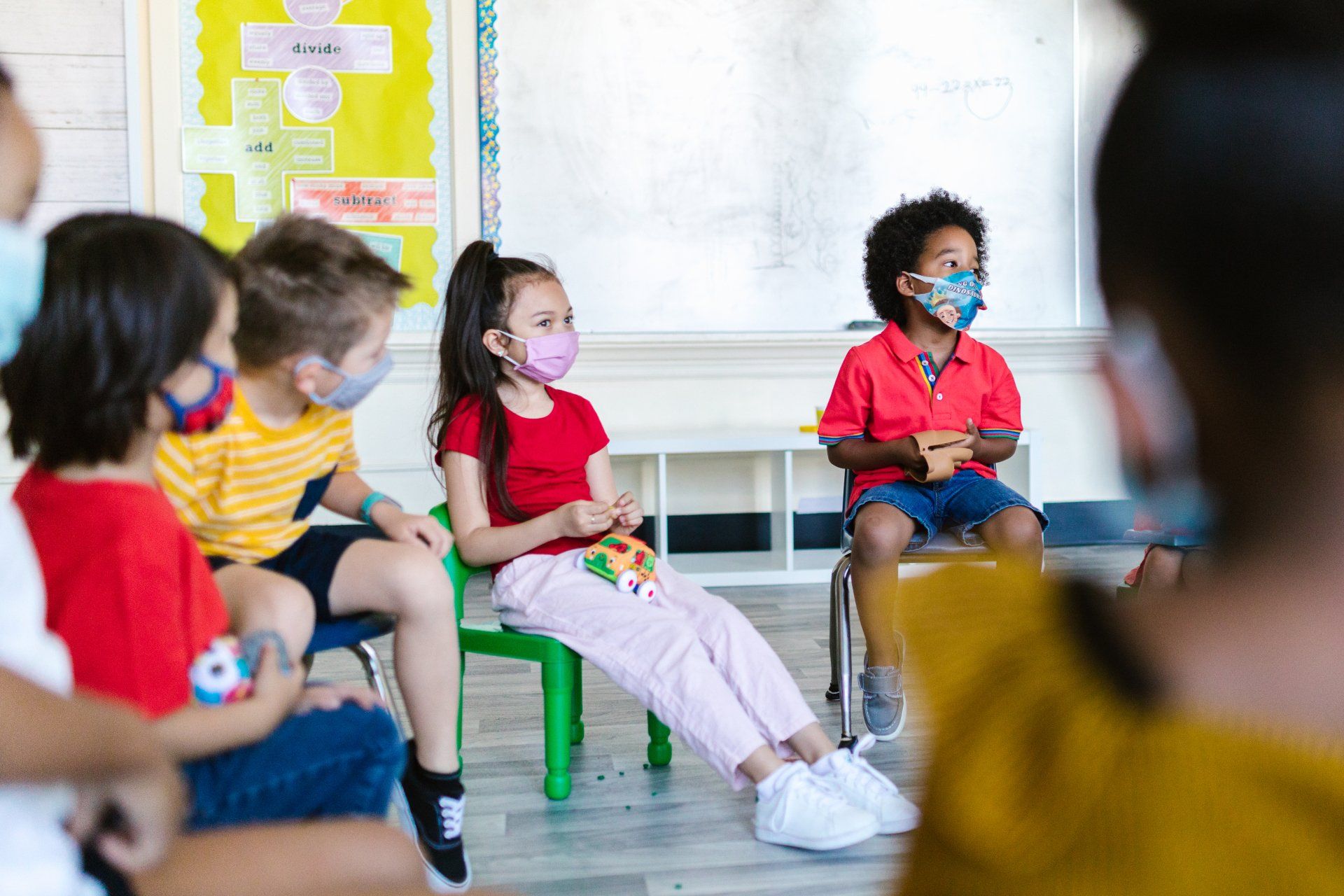
The transition of Early Childhood Development (ECD) from the Department of Social Development to the Department of Basic Education is now in full swing, and will change how the academic development of young children is approached in South Africa. The transition started this month, and will become effective from next year. Among the changes which will be introduced by the move, is the obligation on parents to send their children to school from Grade 00, as opposed to school attendance only being compulsory from Grade 1, as has been the case until now. An education expert says parents who now need to consider where they will send their young child from next year, must do their homework carefully to ensure the school they choose approaches ECD from a child-led learning perspective. This will ensure they start their academic journey appropriately for their age, that they build strong foundations, and that they have positive associations with attending school. “Schools have different programmes and approaches, and parents may be seduced by the idea of sending their child to a strictly academics focused ECD institution which will turn their little one into a mini Einstein before they even head to big school. However these good intentions are likely to fall flat, as this is not the correct and age-appropriate approach,” says Lynda Eagle, Academic Advisor at ADvTECH Schools, SA’s leading private education provider. “The early years are exceptionally important, but learning should be play-based as far as possible. One of the best approaches to this is contained in the Reggio Emilia philosophy of learning. Bombarding young children with a curriculum more suitable to older students is entirely counter-productive,” she says. When looking for an early learning campus, parents should search for a school that is not only aesthetically pleasing but more importantly where the student’s wellbeing is placed at the forefront. “Young children learn best when provided with opportunities to ‘play’ - where they can explore, discover, and experiment in order to make sense of the world around them. The school/teachers need to be cognisant of this and facilitate the students’ personal learning journey through careful observations and by providing meaningful and relevant learning opportunities.” Other things to look out for when hunting for the right ECD environment for your child, includes: Teachers who are appropriately qualified to teach in an early learning environment, Where teachers have a caring and positive disposition and where a child is viewed as competent and capable, Where there is a strong sense of community, Where teaching is engaging, relevant and interactive, and Where the school follows a positive discipline policy - students are guided positively and supported as they develop their social and self-regulation skills. “For parents who may be concerned about the ability of schools to adapt to the new paradigm, they can be reassured that the inclusion of the younger years into their programmes is doable if the right approach is followed. Approaches to teaching and learning in the early years – such as the Reggio Emilia approach - are well documented and provide schools with prime examples of best practice. Here the emphasis is not on equipping a school with expensive resources but rather connecting the student with natural elements in meaningful ways, with rich learning experiences, and helping them to reimagine and repurpose available materials – resulting in rich learning opportunities and possibilities.” ENDS ABOUT ADvTECH The ADvTECH Group, a JSE-listed company, is Africa’s largest private education provider and a continental leader in quality education, training, skills development, and placement services. The Group reports its performance in a segmental structure reflecting the Schools and Tertiary as two separate education divisions, and Resourcing as the third division. ADvTECH’s Schools division comprises 9 brands with more than 108 schools across South Africa and the rest of Africa, including Gaborone International School in Botswana, and The Makini Group of Schools and Crawford International in Kenya. It owns 9 tertiary brands, across 32 campuses across South Africa and the rest of Africa. ADvTECH’s 8 resourcing brands places thousands of candidates annually, assisting graduates to make the transition from the world of study to the world of work.

As more and more South African schools work towards improving their tech offering in response to the need to prepare students for the future of work, parents should ensure they get a solid understanding of what is required from a high quality, holistic EdTech programme, an academic education expert says. “While we may realise the importance of preparing children to navigate their future digital world, understanding what factors inform a programme which is based on academic excellence, and which incorporates the newest technologies while also focusing on digital citizenship, is crucial. Parents therefore need to view their school’s offering and promise of digital skills with a discerning eye,” says Nadia Dal Lago Nell, Academic Advisor: EdTech and Innovation (Schools Division) at ADvTECH, Africa’s largest private education provider. Nell says it is very important for schools to seek to provide an enhanced educational journey by investing in their students through the integration of technology into the curriculum, as opposed to tech being a standalone educational unit. “The result of technological integration into the curriculum is a more efficient and engaging educational experience. The need for digital literacy and the discerning use of technology by students is essential for them to continue to advance in their education and be equipped with relevant skills for their future workplace,” she says. Schools which can give students the educational edge will have several of the following on offer: programmable robots, interactive coding platforms, Minecraft, 3D printers, iPads, laser cutters and even indoor drones. “Ideally, schools should have dedicated EdTech spaces designed to suit their unique approach to technology and incorporate a variety of devices with a strong emphasis on collaboration. A practical EdTech Framework should also be central to the technology foundation that students are guided through.” One question to ask your child’s prospective school, is whether they are aligned with ISTE standards, advises Nell. ISTE (The International Society for Technology in Education) standards have been formulated by the world’s foremost organisation in teaching technology in the classroom, and comprise the following principles: The Empowered Learner, Digital Citizen, Knowledge Constructor, Innovative Designer, Computational Thinker, Creative Communicator, and Global Collaborator. “An EdTech focused school will introduce the elements of the framework in their context as early as Grade 000 and follow through with this focus until the end of Grade 9, whereafter students will be well-versed in real-world tech-proficiencies. Some schools take this a step further and offer tech-based extracurricular activities, including for instance Robotics clubs.” Nell says EdTech lessons equip students with future focused, transferable global skills that are necessary for success in all areas of life. “The central skills here are creativity and problem solving which are taught through open-ended activities and emphasising the possibility of multiple solutions for any given problem. This provides students with a space for both collaboration and individual growth.” An additional element of the EdTech Framework is Digital Citizenship. “This engages students and shows them how to connect with one another, in an empathetic and safe way through digital tools, platforms and devices. Negative digital habits such as cyberbullying, irresponsible social media usage and unsafe use of the Internet are explained and strongly discouraged. “Students’ safety, growth and well-being when exploring the world of technology must be emphasised at all times. Fortunately, most of the requirements to be a good Digital Citizen can be taught in the classroom and reinforced at home. Digital Citizenship is intended to give students a clear understanding of the interconnection between tech-life and real-life citizenship skills with the aim of creating knowledgeable, responsible, and mindful online interaction. A sound and well thought-out EdTech programme will prepare a student to face the digital world of tomorrow.”
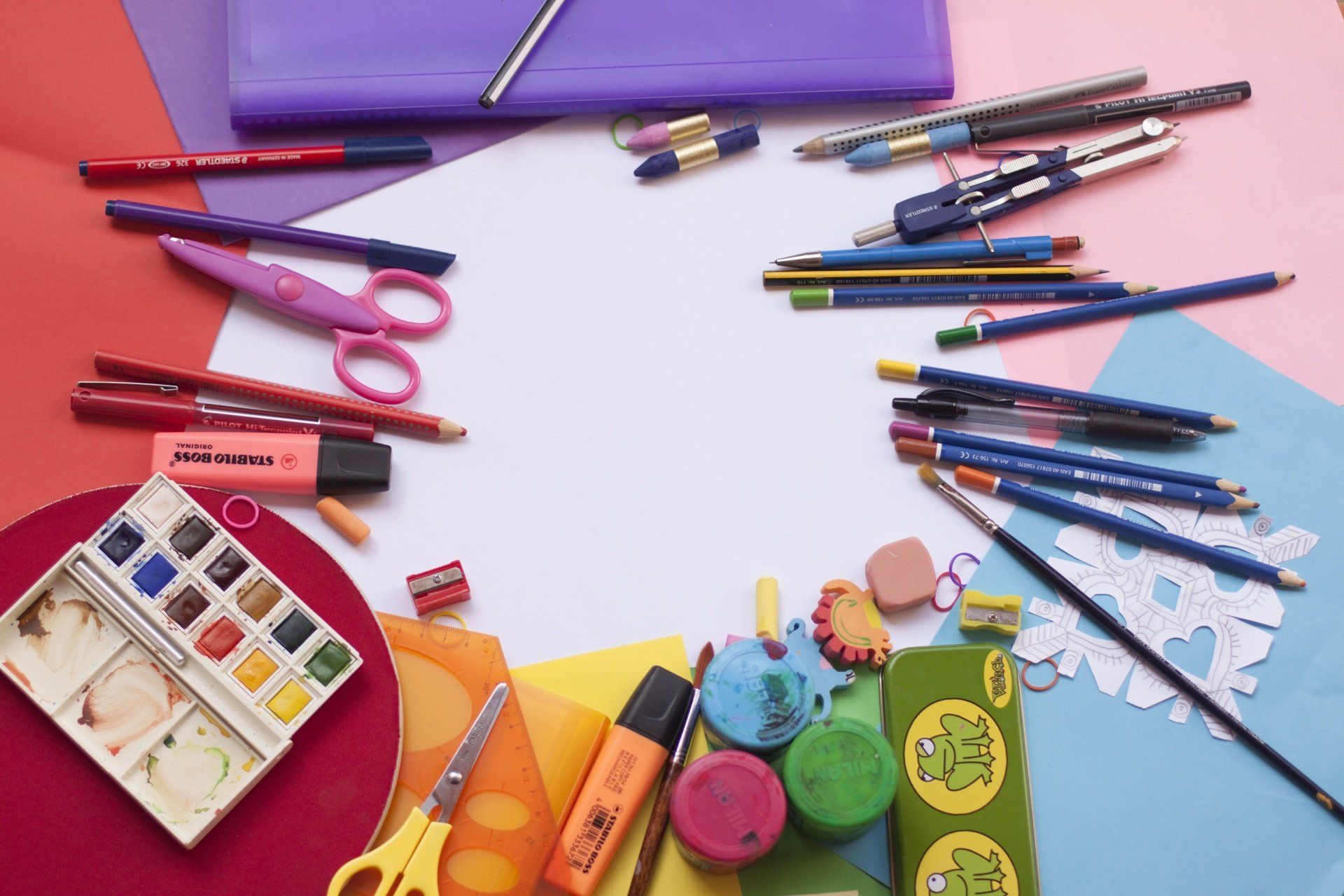
Building the foundations for future academic success must start from when a child enters Grade 1, and the focus must be on cultivating a love of learning, an education expert says. “Parents have an important role to play in the early years, in terms of developing the framework for a child’s educational journey. One of the most important ways in which this can be done, is to help the child navigate the early years with humour and enthusiasm, to ensure the process of learning and discovery creates positive associations in the brain, rather than feelings of anxiety and despondency,” says Desiree Hugo, Academic Head: Schools Division at ADvTECH, Africa’s leading private education provider. Hugo says that by providing playful after-school home routines right from the start, children are able to grow and thrive throughout their school career. “While there is little to no homework in the early years, putting aside some time every day to focus on the day’s activities, by talking over what was done in school during the day and reading together, for instance, young children will start getting into a natural routine of building upon what they’ve learned. By making this a fun and enjoyable experience, and a positive family interaction, they will start to associate learning with empowerment, which will pay dividends down the line when the workload does start to grow,” she says. In addition to setting up a daily ‘connection’ routine with positive associations right from the start, parents should also help their children build the skills which will be required from them later in their school careers, says Hugo. These include: HEALTHY ROUTINES Children need a healthy diet, plenty of sleep and exercise. Unhealthy habits and routines can manifest in a child’s general disposition and academic engagement, so establishing good habits – including limiting screentime – is key. RESILIENCE Help your child keep a balance and put things into context. Sometimes small things going wrong can have a big impact, especially on sensitive children, so young children need to understand that just because they haven’t yet mastered something, this doesn’t mean they can’t. Help them by emphasising the word ‘yet’ – ‘I haven’t mastered this YET, but I will keep trying and then I will’. STAYING POSITIVE While it is normal for parents to feel a little competitive and compare their child’s progress to others, this instinct should be kept in check. Children can very quickly sense if parents feel they are not measuring up to their peers, and this can kickstart a downward spiral in terms of motivation and belief in self. The early years is a developmental stage, and a time for students to explore, discover and hone their skills. Mastering a skill may take many attempts and parents should afford their children the time and space to do so. Therefore, don’t let the child feel their school performance is the be all and end all. It’s okay to not get a perfect score on every spelling quiz, and to focus on mastery rather than performance. LEARNING STYLES If you see your child struggling, it is worth speaking to their teacher or a counsellor to determine whether they perhaps have a unique learning style or special needs which require additional support. There are many different approaches to learning and finding those that work for your child will work wonders on their learning journey. Additionally, it might be that the environment is not right for your child, which is why it is important to find a school that is a right fit. It is therefore vital for parents to do thorough research when choosing a school, by talking to other parents, visiting the school, finding out what their approach entails, and how they will enable your child’s success. And if your child experiences anxiety, it is essential to engage directly with the teachers and school leadership teams to consider supportive interventions – prior to moving environments.
